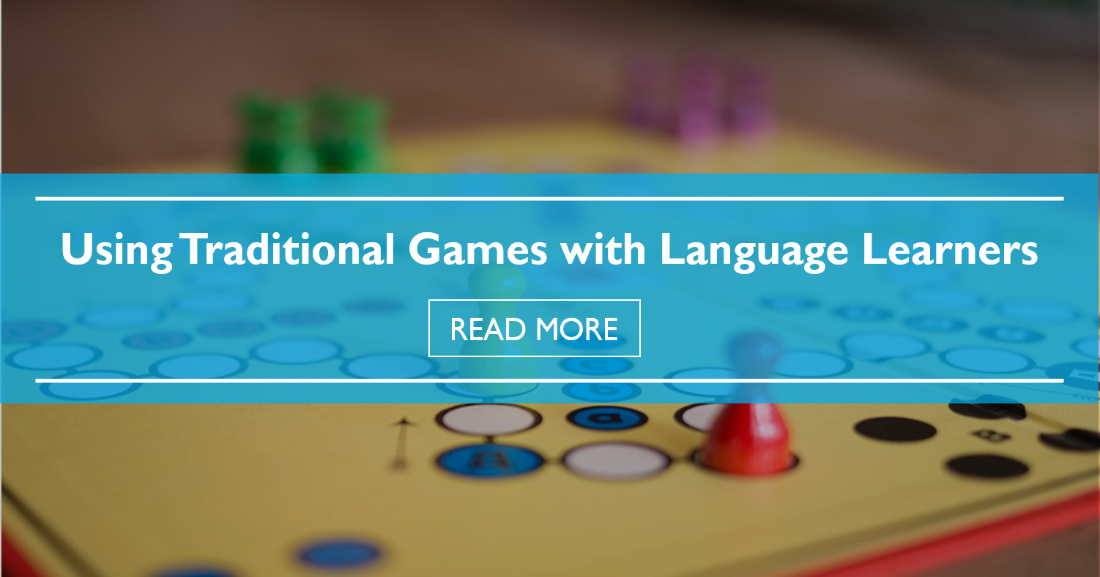Using Traditional Games with Language Learners

It's no surprise to learn that countries like America put a much stronger emphasis on free time and having fun than some of their Eastern counterparts. Some students come from countries where education and studying take up the bulk of their time, particularly because how they perform can determine their future occupation or social class. Other students come from countries where learning English is their ticket out of poverty, a chance at a better life, so their drive motivates them to study and learn as much as possible. While there's nothing wrong with be studious, there's only so much about English that can be learned from a book or even in a traditional classroom setting. A lot of the language can be learned best in more informal scenarios where students are doing the one thing they put off the most - having fun.
Casual conversations and fun activities give learners the chance to hear and use English in context. You can talk all you want about expressions to use while dining out or slang to use with friends, but it takes a trip to McDonald's, a dinner in someone's home, or a picnic in the park and a game of pickup basketball for much of those expressions to truly set in.
If you live in an English-speaking country or an area that has attractions filled with English speakers, getting students out of the classroom and putting them in the middle of other English speakers can give them a chance to build their skills. Students may not speak to strangers (especially if they're young - stranger danger), but they'll hear conversations taking place and may begin to pick up on how the words they're learning in the classroom actually make their way into every day speech.
Let's face it - most recorded language instruction is pretty boring and it can get tiring hearing the same voice repeat the same phrases over and over again. The repetition may be good for learning, but it's okay to throw something new into the mix every now and then. Go see or rent a movie in English or have a karaoke night or dance party with only music sung in English. Students will hear common expressions and more every day conversations. If they're not sure about something they hear, it can turn into a more structured lesson once they're back in the classroom.
Playing games is a fun way to get English language learners to loosen up and have fun. Hold a game night, but require that all talk during the game be in English. If you play a game like Monopoly, you'll have fun with simple phrases like "Go to jail" and the general smack talk that comes along with playing a game.
One thing many English language learners struggle with is confidence when speaking in English. Fun activities, particularly those outside of the classroom, give students a chance to let their guard down and speak more freely. It may take a bit of time and you may have to experience a bit of awkward silence at the beginning of an activity, but once students get into it, they'll start to gain confidence and build their speaking skills as they have fun.